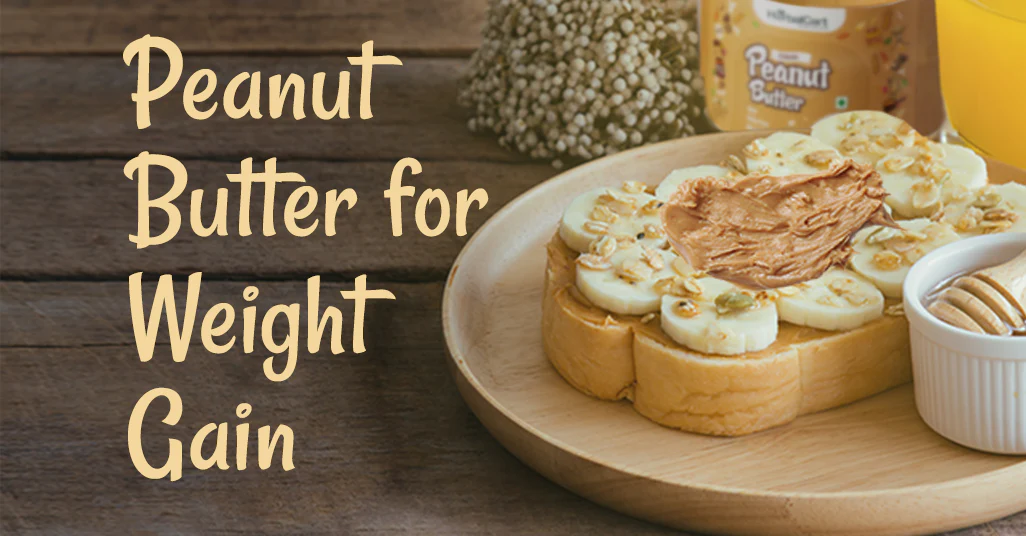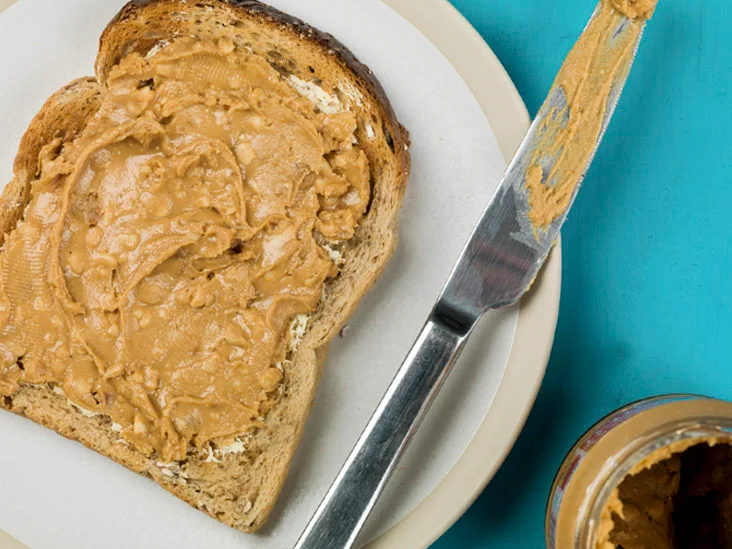

wordpress-seo domain was triggered too early. This is usually an indicator for some code in the plugin or theme running too early. Translations should be loaded at the init action or later. Please see Debugging in WordPress for more information. (This message was added in version 6.7.0.) in /home/sehatnagar.com/public_html/wp-includes/functions.php on line 6114
Gaining weight can be a challenging task for those who struggle with a high metabolism or a small appetite. While many focus on weight loss, there are individuals who want to gain weight for various reasons, such as building muscle, recovering from an illness, or increasing overall body mass. When it comes to healthy and effective weight gain, peanut butter has gained popularity as a delicious and nutritious option. In this article, we will explore how peanut butter good for gaining weight, discussing its nutritional value, calorie content, and potential health benefits.

Peanut butter is a nutrient-dense food that is packed with essential nutrients required for overall health. It is an excellent source of healthy fats, protein, and fiber, along with various vitamins and minerals. Peanut butter is also rich in heart-healthy monounsaturated fats, which can help to improve cholesterol levels and promote cardiovascular health. Additionally, peanut butter contains important micronutrients such as vitamin E, vitamin B3 (niacin), magnesium, and phosphorus, which play vital roles in supporting the body’s functions.
Peanut butter is a calorie-dense food, which makes it an ideal choice for those looking to gain weight. A single tablespoon of peanut butter contains approximately 90-100 calories, depending on the brand and variety. This high calorie content makes it easy to add extra calories to your diet, especially if you have a small appetite or struggle to consume enough calories to support weight gain. Incorporating peanut butter into your daily diet can provide you with an easy and convenient way to increase your caloric intake, which is essential for gaining weight in a healthy manner.
Protein is a crucial macronutrient that plays a key role in building and repairing tissues, including muscles. Peanut butter is a good source of plant-based protein, providing approximately 4 grams of protein per tablespoon. Including peanut butter in your diet can help you meet your protein requirements, which is crucial for gaining weight through muscle growth. Protein is also important for post-workout recovery, as it aids in repairing and rebuilding muscles after exercise, making peanut butter a great option for those who engage in regular physical activity to build muscle mass.
In addition to its high caloric and protein content, peanut butter also offers several health benefits. First, it contains healthy fats, which can help to promote satiety and keep you feeling fuller for longer, preventing excessive snacking and aiding in weight gain. The monounsaturated fats found in peanut butter are also beneficial for heart health, as they can help to lower bad cholesterol levels and reduce the risk of cardiovascular diseases. Additionally, the vitamins and minerals present in peanut butter, such as vitamin E, magnesium, and niacin, have antioxidant properties that can support overall health and well-being.
There are various ways to incorporate peanut butter into your diet to promote weight gain. You can spread it on whole-grain bread or crackers, add it to smoothies, mix it with yogurt or cottage cheese, or simply eat it by the spoonful. However, it’s important to keep portion sizes in mind, as peanut butter is high in calories and can lead to weight gain if consumed in excess. It’s recommended to start with small amounts and gradually increase your intake based on your individual calorie and protein needs.
Peanut butter is a readily available and affordable food option, making it a practical choice for those on a budget or with limited access to other weight gain supplements or foods.Peanut butter can be a beneficial addition to a weight gain diet due to its high calorie and protein content, versatility in recipes, convenience, and health benefits. However, it’s important to consume it in moderation, keeping in mind your overall calorie and nutrient needs. As with any dietary changes, healthcare professionals or registered dietitians recommend consulting to ensure that peanut butter is suitable for your individual health and weight gain goals.
Peanut butter is incredibly versatile and can be used in a wide range of recipes, from savory to sweet. You can use it as a base for sauces, dips, dressings, or marinades, or incorporate it into baked goods, smoothies, or energy bars. This versatility allows you to get creative with your culinary skills while enjoying the benefits of weight gain through peanut butter.
Peanut butter can also serve as a nutritious and satisfying snack option, especially for those looking to gain weight. A small serving of peanut butter can provide a good balance of macronutrients and micronutrients, helping to curb hunger and provide essential nutrients while supporting weight gain efforts.
Peanut butter can be a beneficial addition to a weight gain diet due to its high calorie and protein content, versatility in recipes, convenience, and health benefits. However, it’s important to consume it in moderation, keeping in mind your overall calorie and nutrient needs.Consulting with a healthcare professional or a registered dietitian is recommended to ensure that peanut butter is suitable for your individual health and weight gain goals, as with any dietary changes.